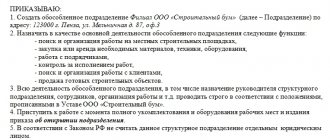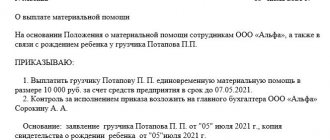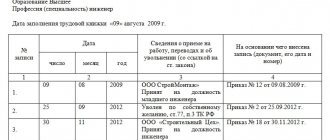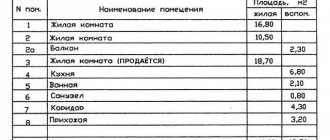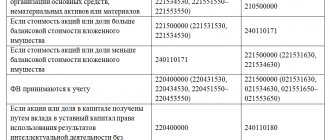Types of medical examinations of workers
Labor legislation distinguishes three types of medical examinations.
1. Preliminary. They are taken when applying for a job, even before concluding an employment contract.
Draw up and print an employment contract
2. Periodic. They are carried out with a certain frequency during the work period. This category of examinations also includes medical examinations at the beginning and end of the working day (shift). They are established for certain categories of workers (for example, for drivers; for more details, see “Medical examination mark on the waybill: who, when and how should put it down”).
3. Extraordinary. They are necessary if there are appropriate medical recommendations (Part 1 of Article 213 of the Labor Code of the Russian Federation). Such recommendations can be given, for example, after an employee’s illness or based on the results of a regular medical examination (clause 19 of Order No. 29n).
What documents are needed
A medical examination is carried out upon presentation of:
- Passport or a document replacing it;
- Referrals from the employer;
- Medical card. If it is not there, then you will need a 3*4 cm photograph in order for the clinic to issue a new document.
If you need to be examined by a narcologist or a psychiatrist, it is advisable to take a certificate from your place of residence in advance stating that you are not registered with doctors in these specialties. Applicants applying for jobs in the police, emergency services, and transportation also need a military ID.
Why is it necessary to undergo medical examinations?
The purpose of any medical examination is to determine the suitability of a person to perform the work assigned to him and to prevent occupational diseases by identifying them at an early stage. Medical examinations are also needed to establish medical contraindications to certain types of work and to detect early signs of the impact of harmful and (or) hazardous production factors in the working environment and the labor process on the health of workers. Based on these data, risk groups for developing occupational diseases are formed.
IMPORTANT
The employer does not have the right to allow employees to perform their job duties who have not undergone a mandatory medical examination (Article of the Labor Code of the Russian Federation).
Another purpose of a medical examination is to ensure the protection of public health and prevent the occurrence and spread of diseases. In particular, for this purpose, sellers, employees of catering establishments and other organizations specified in Part 2 of Article 213 of the Labor Code of the Russian Federation are examined.
Prepare labor safety documents in a special service Try for free
Registration of results
At the final stage of the medical examination, the patient’s suitability or unfitness to perform professional duties is confirmed by the therapist. If contraindications are revealed during the examination, harmful factors with which the employee should not come into contact will be indicated.
Extended diagnostic results are necessarily displayed in the medical record. For workers in a number of professions, in addition to the certificate, they will also need to obtain a personal medical record, which the employer warns about in advance.
Reasons for medical examinations of employees
Such grounds are listed in Articles 213, 298 and 324 of the Labor Code of the Russian Federation and in paragraph 20 of Procedure No. 29n. Thus, employees of food industry organizations, public catering and trade, water supply facilities, medical organizations and children's institutions undergo mandatory medical examinations.
Medical examinations are also provided for persons engaged in work with harmful and (or) dangerous working conditions, in underground work and work related to traffic. The list of such harmful and (or) dangerous production factors, as well as work during which medical examinations are carried out, was approved by order of the Ministry of Labor and the Ministry of Health dated December 31, 2020 No. 988n/1420n.
In addition to those employed in the work specified in the List, employees performing work specified in Appendix to Procedure No. 29n must undergo medical examinations. Specifically, this Appendix lists work at heights; work related to the maintenance of electrical installations or pressure equipment; and etc.
ATTENTION
Persons under the age of 18 can start work (regardless of its type) only after a preliminary medical examination. In the future, until they reach adulthood, they are required to undergo annual medical examinations (Article 266 of the Labor Code of the Russian Federation).
Fines for failing a medical examination
A competent employer will never hire a specialist if he does not pass the medical examination required by law. This is due to the fact that when such a violation is detected, large fines are imposed on the organization, their amount:
- For officials and individual entrepreneurs from 15 to 25 thousand rubles;
- For legal entities – from 110 to 130 thousand rubles.
If the offense is detected again, then for officials and individual entrepreneurs the fine is doubled, and for legal entities it increases to 200 thousand rubles.
Who should undergo a preliminary medical examination
When determining the categories of persons who can be hired only with a medical certificate, you need to focus on the above criteria. Thus, before drawing up an employment contract, all workers under the age of 18 are required to see doctors, as well as persons entering work in harmful and (or) dangerous working conditions, including underground work (Article 69, Part 1, Article 213, Part 1 Article 330.3 of the Labor Code of the Russian Federation). The list of such factors and works is given in the mentioned order No. 988n/1420n. They are also listed in the Appendix to Order No. 29n.
Those who apply for a job directly related to the movement of vehicles will also have to undergo a medical examination before signing an employment contract (Part 1 of Article 213, Part 2 of Article 328 of the Labor Code of the Russian Federation).
Fill out waybills indicating the route and mandatory details in a special service
The next category of workers for whom mandatory preliminary medical examinations are provided are persons hired in organizations of the food industry, catering and trade, water supply facilities, medical organizations and children's institutions (Part 2 of Article 213 of the Labor Code of the Russian Federation).
Another case when a job applicant needs to be referred to a doctor is related to the planned work on a rotational basis (Article 298 of the Labor Code of the Russian Federation).
And finally, the last mention in the Labor Code of a preliminary medical examination concerns persons hired to work in the regions of the Far North and equivalent areas, if these persons move there from other regions (Article 324 of the Labor Code of the Russian Federation).
IMPORTANT
A medical examination passed during the period of activity in another organization or under circumstances not related to employment cannot replace a preliminary medical examination upon hiring (letter of the State Labor Inspectorate in Moscow dated 02/12/20 No. 77/10-3961-20-OB/ 18-1299).
The procedure for conducting preliminary medical examinations. Step-by-step instruction
There are three stages of such a medical examination. At the first stage, the preliminary stage, a list of people applying for work is compiled for whom a medical examination is required. This list is generalized and not by name: it indicates positions (professions) or jobs that require a medical certificate upon entry, and the corresponding harmful production factors (clauses 9 and 10 of Order No. 29n).
Further, taking into account this list, the employer enters into an agreement for medical examinations with a medical institution (last paragraph of clause 12.4 and clause 14 of Procedure No. 29n). Here we note that any medical organization that has the appropriate license can conduct medical examinations (clause 4 of Order No. 29n).
Check the license of a medical organization or individual entrepreneur in a few clicks Create a request
The second stage is the actual medical examination. It begins with the employer issuing a referral for a medical examination to the person applying for work (clauses 8 and 9 of Procedure No. 29n). In the direction you need to indicate a number of information. Namely: information about the employer (name, email address, contact phone number, form of ownership and OKVED code) and its structural unit, if any; information about the medical organization (actual address of its location and OGRN code, email, contact phone number); type of medical examination (preliminary); information about the person applying for work (last name, first name, patronymic (if any), date of birth and gender); name of the position (profession) or type of work, as well as harmful and (or) hazardous production factors (filled out in accordance with the list approved at the first stage); Compulsory medical insurance and (or) VHI policy number.
ADVICE
We recommend that you additionally inform the employee in writing (for example, indicate in a certificate) that in order to undergo a medical examination the following is required:
- direction;
- passport;
- SNILS;
- compulsory medical insurance or voluntary medical insurance policy.
The referral is signed by an authorized representative of the employer. The position and full name of this person are indicated (clause 9 of Procedure No. 29n). Information about the assignment issued is entered in a special journal or other form of accounting maintained by the employer.
Keep personnel records and prepare all personnel reports for free in the “Kontur.Personnel” service
With this referral, as well as a set of personal documents (passport, SNILS, insurance policy), the job candidate is sent to a medical institution to undergo a commission. Based on its results, a conclusion is drawn up in triplicate. One of them is received by the future employee himself, the second remains in the medical organization and is attached to the outpatient card, and the third is sent to the employer (clauses 15 and 17 of Order No. 29n).
ATTENTION
In a number of cases, data on undergoing a medical examination are entered into a personal medical record (clause 5 of Article of the Federal Law of March 30, 1999 No. 52-FZ “On the Sanitary and Epidemiological Welfare of the Population”).
For example, such a document is issued to employees of organizations whose activities are related to the production, storage, transportation and sale of food products and drinking water; raising and teaching children; public utilities and consumer services. The employee’s personal medical record must contain the seal of the Rospotrebnadzor organization that issued it and the signature of the owner. The medical book is kept by the employer. At the third stage, the employer makes a decision based on the results of the medical examination and draws up the relevant documentation. If the medical report indicates contraindications for performing work in a certain position, profession or for performing a certain type of work, the employer cannot allow the candidate to perform the corresponding work. This means that the applicant must be denied an employment contract. The same should be done if, based on the results of the medical examination, a certificate is issued indicating the need for additional medical examination (clause 14 of Procedure No. 29n).
If there are no contraindications, then an employment contract is drawn up with the candidate. And information about the medical examination must be included in the 4-FSS (Table 5). This information will be taken into account when calculating discounts and surcharges to the insurance rate for premiums for “injuries.”
Fill out and submit 4‑FSS online using the current form
What kind of doctors do they go through?
There is no single list of doctors whose opinions will need to be obtained during a medical examination. The examination plan is selected based on the patient’s professional responsibilities. But almost all new job seekers require examinations from:
- Ophthalmologist;
- Neurologist;
- Otolaryngologist;
- Surgeon;
- Therapist.
A number of professions require the opinion of a dentist, psychiatrist and narcologist. Persons whose work involves people or food processing need to be examined by a dermatovenerologist. In addition, women are additionally examined by a gynecologist, and after 40 years by a mammologist.
How to conduct a periodic medical examination of workers: step-by-step instructions
In this case, at the preliminary stage, the employer also first draws up a generalized list of employees who are required to attend a medical examination (clause 20 of Procedure No. 29n). Based on this list, an agreement is concluded with a medical organization.
Then a second, already named, list of employees sent for a medical examination is formed (clause 24 of Procedure No. 29n). It indicates information about each employee: full name, profession or position, length of service in the company, reason for a medical examination (harmful factors) and structural unit of the organization, if any (clause 23 of Procedure No. 29n).
The list of names is sent to the medical organization no later than two months before the start date of the periodic medical examination agreed upon in the contract. Based on this list, a calendar schedule of medical examinations is formed (clauses 24 and 26 of Procedure No. 29n). The schedule prepared by the medical institution is agreed upon with the employer and approved by the head of the medical organization (clause 26 of Order No. 29n). All employees specified in it must be familiarized with the approved plan no later than 10 working days before the agreed date for the start of the inspection (clause 27 of Procedure No. 29n).
Draw up local acts using ready-made templates and keep personnel records in a special service Try for free
At this point the preparatory stage ends and the main stage of the medical examination begins. Just as in the case of a preliminary medical examination, the employer issues relevant directions to employees (against signature) (clauses 9 and 25 of Procedure No. 29n), and enters information about them into the logbook.
IMPORTANT
It is necessary to inform the employee that in order to undergo a periodic medical examination, he must arrive at the medical organization on the day established by the calendar plan.
If this medical organization is remote from the location of the employer, the latter pays for the employee’s travel and accommodation at the location of the medical examination (letter of the Ministry of Labor dated January 22, 2020 No. 15-2/B-137). With this referral and personal documents (passport, SNILS, insurance policy), the employee visits the medical institution and undergoes a commission. Based on the results of the examination, a medical report is drawn up. One copy is given to the employer.
At the last stage, the employer makes organizational decisions based on the results of the medical examination. Thus, if the conclusion indicates contraindications for performing certain work, the employee should be immediately removed from such activities. Removal is formalized by order or regulation.
The medical report may state that the employee needs to be transferred to another job. Documents for transfer are processed only with the written consent of the employee. If the employee is not ready to change his type of activity, or the company does not have a suitable vacancy, he can be dismissed only if, in accordance with a medical report, he needs a temporary transfer for a period of more than 4 months or a permanent transfer. In such a situation, the employment contract is terminated on the basis of clause 8 of part 1 of article of the Labor Code of the Russian Federation. If the transfer period established by doctors is less than 4 months, then it is impossible to dismiss an employee who does not agree to the transfer on this basis. It is necessary to remove him from work that is inappropriate for medical indications for the entire period of transfer indicated in the conclusion. No salary is paid for this period.
Calculate “complex” wages under different remuneration systems
If no contraindications are identified, no separate organizational decisions are made, and the employee continues to perform his job function.
This stage ends with the medical organization drawing up a special final act. It contains data on persons who passed the medical examination, those who did not pass the medical examination, and those who did not complete the medical examination. The act also contains information about those employees who have been previously diagnosed with an occupational disease. Finally, this document provides recommendations to the employer on how to implement a set of wellness measures.
IMPORTANT
This act may contain recommendations that are the basis for conducting extraordinary medical examinations of employees (clauses 19 and 45 of Procedure No. 29n).
After completion of the entire procedure, data on the periodic medical examination performed is included in Form 4-FSS.
Who pays for the medical examination?
Patients over 18 years of age will have to pay for a medical examination in both public and private medical institutions. The cost of the entire medical examination depends on the number of doctors involved, types of tests and examinations. But in any case, the preliminary medical examination is paid for by the employer, that is, the organization interested in employment. Typically, the job applicant himself pays for doctor’s appointments and tests, and these expenses are then reimbursed by the employer.
Important! If a commission at a medical institution is carried out on the direction of an organization, then it is obliged to pay it even if the applicant does not receive a place on the staff.
Expenses for employee medical examinations
Such expenses are always borne by the employer. At the same time, Procedure No. 29n provides that medical examinations are carried out exclusively on the basis of an agreement that the employer has concluded with a medical organization, and in accordance with the direction issued under this agreement. This follows from the last paragraph of clause 12.4 and clause 14 of Order No. 29n.
In this regard, the practice of employees undergoing medical examinations at their own expense with subsequent compensation for expenses may become a reason for holding the employer liable for violation of labor laws. There is also a high probability that the Federal Tax Service will “remove” the corresponding expenses. In addition, insurance premiums will have to be charged for this compensation (letter from the Federal Tax Service dated January 27, 2020 No. BS-4-11/ [email protected] ). Let us note that companies manage to defend in court the right not to pay contributions on the amount of compensation to employees for medical examination expenses (see “Compensation for mandatory medical examinations: the Supreme Court clarified whether contributions need to be charged”).
Fill out, check and submit insurance premium calculations online
Consequences of not getting a medical examination
If an employee refuses to undergo a medical examination or evades examination (including not completing the necessary studies and examinations), the employer does not have the right to allow him to work. In this case, the employee is suspended from work for the entire period until he undergoes a medical examination. Wages are not maintained during this time (Article of the Labor Code of the Russian Federation).
Also, refusal to undergo a mandatory medical examination may become a reason for disciplinary action, including dismissal (clause 1 of Article 192 of the Labor Code of the Russian Federation). In addition, an employee who has a disciplinary sanction and who has repeatedly failed to perform job duties without good reason can be dismissed under clause 5 of part 1 of the article of the Labor Code of the Russian Federation (subclause “c” of clause 35 of the resolution of the Plenum of the Supreme Court dated March 17, 2004 No. 2). For more information, see “How to fire an employee in 2022: step-by-step instructions for the employer.”
If a job candidate was supposed to undergo examination, but he did not, then this fact is an obstacle to drawing up an employment contract. Such an applicant must be denied employment (Article of the Labor Code of the Russian Federation).
How to check the authenticity of the certificate?
The employer must ensure that the certificate it receives from the candidate for the position is genuine. First of all, a visual inspection helps with this. The forms must be printed; photocopies are not allowed. Genuine seals are “wet”, that is, they are clearly visible from the other side of the document. Doctors' signatures must be clear and emphatic.
The form also indicates the name of the medical institution; it can be found in the list of clinics that are allowed to conduct medical commissions. If the organization is not found, then this is a reason to doubt whether it has a license. The personnel and legal services of the enterprise must be attentive to checking the authenticity of the certificate, since if the inspection authorities detect a fake, then penalties cannot be avoided.

